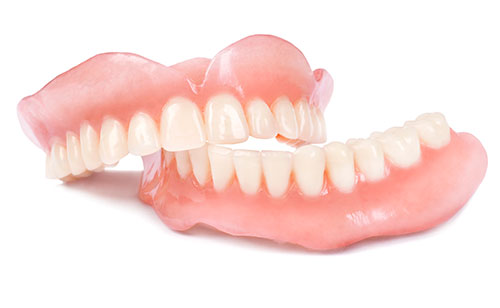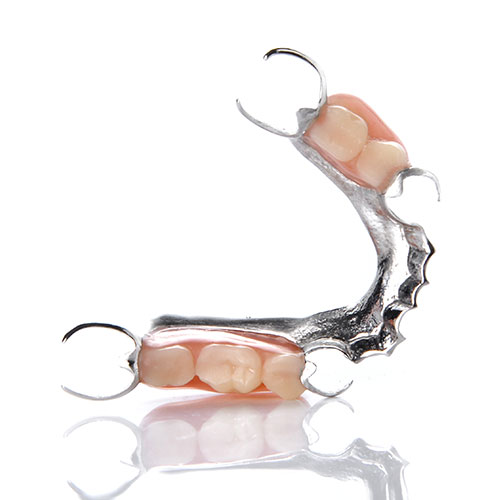Dental Prosthesis



Create Online Appointment
Plan Your Appointment NowAsk Your Questions
to Our Doctors



Materials prepared for repairing or replacing the teeth in case in which teeth and surrounding tissues suffer from substance loss or they are lost entirely are called “prostheses”.
What is the purpose of dental prosthesis?
While trying to regain the lost functions of the patient, it is also aimed to improve speech impediments and to give better aesthetical appearance. Hence, while largely lost oral health is improved, also psychologically support is provided to the individuals, who are forced to live in the community with missing or devastated teeth. Because, the individuals who are forced to live like that in the community (even if for a while), also pre-emptively forget to smile as well.
And this cause people to lose their self-confidence, besides functional deformations. With various prosthesis applied on these kinds of patients, it is also aimed to enhance the living standard of the people.
How can the damaged teeth be preserved?
Teeth get eroded throughout years as a result of people eating, chewing and bruxism etc. Also, decays and accidents may cause fractures in some parts of teeth. In these cases, dentures called crowns replace the lost formations. These crowns are made by using acryl or unique metal composites designed for dentistry. Latest developments in dentistry make these formations look very natural.
Dentures made for lost teeth are in two types generally:
- Fixed prostheses such as crown and bridges which cannot be removed and are applied onto the remaining teeth,
- Removable dentures which can be removed when wanted
Fixed Prostheses



They are prostheses made for the missing teeth supported by other teeth or implants which cannot be removed by patient. These prostheses are called fixed prostheses.
Removable Dentures



In case of too many missing teeth or no tooth at all, these prostheses can be applied which get the support from the jaw tissue or implant teeth and which can be removed by patients.
Removable dentures get the support from the present teeth. This support is gathered by a hook inserted in other teeth. Image of a metal hook creates unaesthetic look. Current approach is to use sensitive holding prostheses or implant supported removable dentures in order to relieve this negativity.
PROSTHESES WITH SENSITIVE GRIPPING
Humanity searched for various alternatives for prostheses which are applied for lost tooth to be comfortable, painless and aesthetic. These alternatives are sometimes with small rubber pedestal, sometimes bone and sometimes with metal pedestal. When all these aesthetic and simplicity is combined with a proper chewing, modern prostheses with sensitive gripping came out in today’s technology.



Dr. Ahmet KİĞILIDişhekimi / Prostodonti ve Estetik Diş Hekimliği
1986 yılında başladığı Gazi Üniversitesi Diş hekimliği Fakültesinden 1992 yılında mezun oldu.
Profile Git
Treatments Other Related Articles



What are the substances used for treatment of tooth decay?
What are the substances used for treatment of tooth decay? Zinc involving substances which are usually used temporarily Calcium involving healing substances Silver, tin, zinc, gold involving tough substances Glass, aluminum, phosphate and artificial resin including substances that are usually used in aesthetic purposes Substances containing aluminum silicate glass particles used for various purposes Prepared […]
Read More


How is tooth decay treated?
How is tooth decay treated? Tooth decays occur in patients who do not have well oral care and due to bacterial plaque and food remnants. Carbohydrate dominant nutrition, saliva fluidity, familial factors and oral care are the factors in tooth decay formation. What could be done in order to prevent tooth decays? Teeth should be […]
Read More


Can tooth decays be prevented?
Can tooth decays be prevented? Brushing the teeth after the breakfast and before sleeping and use of dental floss every day is the most efficient way. Because of the fact that food remnants accumulate in the recessions in the masticator surfaces and interdental spaces, tooth brushes should be small headed. Inner surfaces of the teeth, […]
Read More


Who develop tooth decay more commonly?
Who develop tooth decay more commonly? Those who consume carbohydrate and sugary foods commonly are under higher risk of decay. Although the saliva creates a defense mechanism against the acid produced by the bacterial plaque, it cannot prevent decays on its own. Diseases that reduce the saliva flow and amount or drugs may fasten decay […]
Read More
